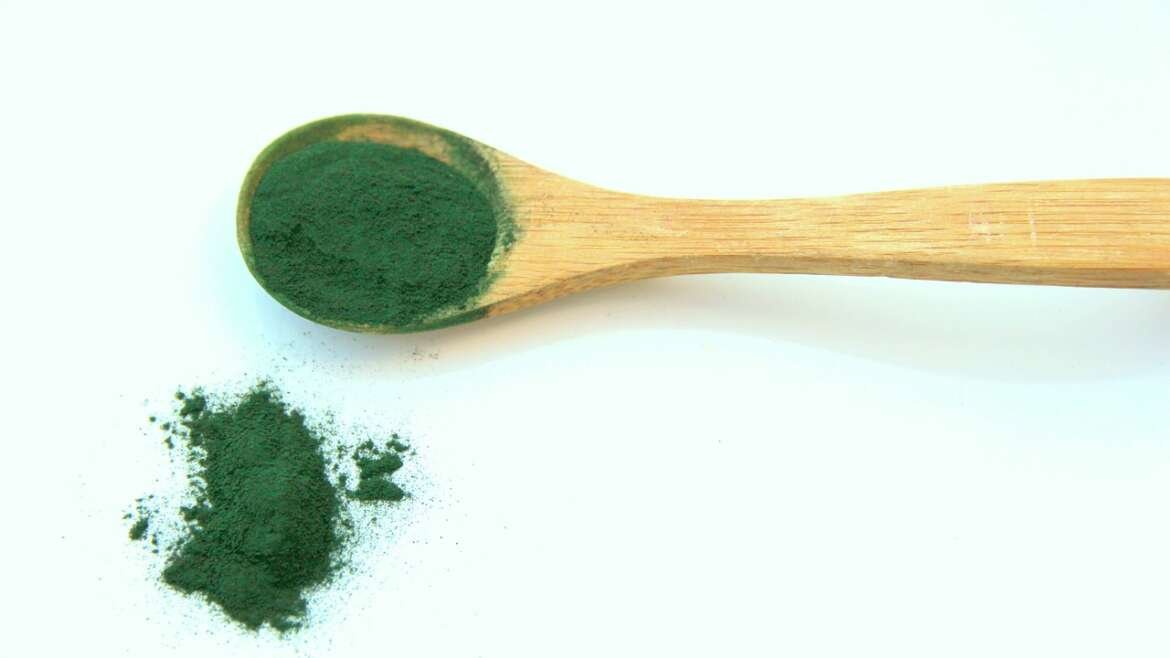The popularity of superfoods, which are foods high in nutrients and are thought to have many positive effects on health, has increased in recent years. Spirulina, an algae, is one of these superfoods that is getting a lot of attention because of its high nutritional value. Spirulina’s reputation as a “miracle” or “blue-green” algae due to its wide range of purported health advantages has attracted the attention of both laypeople and experts in the field. Let’s learn more about spirulina, the incredible superfood, and its intriguing background.


Spirulina: what is it?
Spirulina is a form of blue-green algae that thrives in both fresh and salt water at the microscopic level. The Aztecs and African natives were only two of the many nations who have ingested it for ages. In modern times, freshwater ponds have become the predominant commercial cultivation and harvesting locations for spirulina.
Food Fortification
One of the main reasons spirulina has become so popular is because of the remarkable nutritional punch it provides. It’s a good source of protein and has all the amino acids our bodies require. The fact that it contains all the essential amino acids makes it an excellent choice for vegetarians and vegans.
Spirulina is also a great way to get the vitamins and minerals you need. B vitamins (thiamine, riboflavin, niacin, and B6), iron, and copper are all abundant. Spirulina is a blue-green algae that contains a wide variety of antioxidants, such as the carotenoid beta-carotene and the pigment phycocyanin.
Supplemental Immunotherapy
Spirulina has been shown to have the capacity to maintain a healthy immune system, making it one of the most noticeable benefits. Spirulina’s anti-oxidant properties make it a useful tool for preventing cell death and damage from oxidative stress and free radicals. Spirulina’s ability to scavenge free radicals suggests that it may be useful for boosting immunity in general.
Functions as a Detoxifier and Antioxidant
The detoxification processes in the body rely heavily on the high antioxidant content of spirulina. It aids the body in flushing out harmful substances including heavy metals like arsenic and lead. Glutathione, a potent antioxidant essential for detoxification and cellular health, is boosted by spirulina consumption.
Increased Stamina and Effort in Physical Activity
Spirulina is popular among athletes and health-conscious people because of its potential to boost energy and performance. The iron and vitamin B in it contribute to good energy metabolism, and the protein in it aids support muscle rehabilitation and growth. It has been suggested that the antioxidant properties of spirulina can help reduce the oxidative stress and muscular exhaustion that occur during exercise.
Condition of the Heart
Spirulina has been linked in several studies to potential benefits for cardiovascular health. It has been demonstrated to improve cholesterol and triglyceride levels and reduce blood pressure. Spirulina’s anti-inflammatory and antioxidant properties, as well as its capacity to stimulate the body’s synthesis of nitric oxide, a molecule that relaxes blood vessels and increases blood flow, are responsible for these benefits.
Possibile Cancer-Fighting Effects
New evidence reveals that spirulina may have cancer-fighting effects. The growth of cancer cells may be slowed by spirulina extracts, according to some research. These first results are encouraging, and additional study of spirulina’s potential role in cancer prevention and treatment is warranted.
Adding Spirulina to Your Meal Plan
Powder, pills, and tablets are just some of the forms that spirulina comes in. It tastes a little bit like dirt and seaweed, which some people could find unpleasant. Smoothies, drinks, and recipes like energy balls and homemade protein bars are great ways to hide the taste.
If you have any preexisting health concerns or are taking any medications, you should talk to your doctor before adding spirulina to your diet, as is the case with any dietary supplement or superfood.
Conclusion
Spirulina, a magnificent blue-green algae, is widely recognised as a superfood due to its high nutrient content and promising health benefits. It’s a great complement to a healthy diet because of its high nutritional value, ability to help strengthen the immune system, aid in detoxification, and possible impact on cardiovascular wellness and cancer prevention.
Although spirulina has many positive health effects, it should not be mistaken for a miracle food. For optimal health, it’s important to stick to a healthy routine that includes eating right, exercising frequently, and getting plenty of sleep.
More investigation into spirulina is sure to lead to fascinating new findings concerning this remarkable superfood. In the meanwhile, spirulina can be a tasty and helpful addition to your diet, helping you to nurture your body while also appreciating the bounty of nature.


4 Comments
bestiptvireland,
Usually I do not read article on blogs however I would like to say that this writeup very compelled me to take a look at and do so Your writing taste has been amazed me Thanks quite nice post
asmarubab,
Thank you, bestiptvireland
Your comment made my day!
flooring,
I am not sure where youre getting your info but good topic I needs to spend some time learning much more or understanding more Thanks for magnificent info I was looking for this information for my mission
asmarubab,
I appreciate you taking the time to leave a comment, flooring.irish. Your support is truly valued
Add Comment